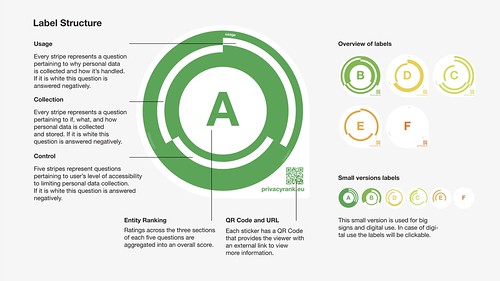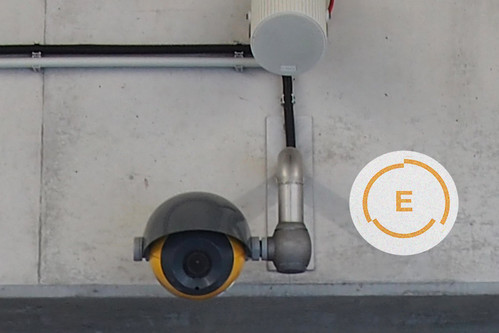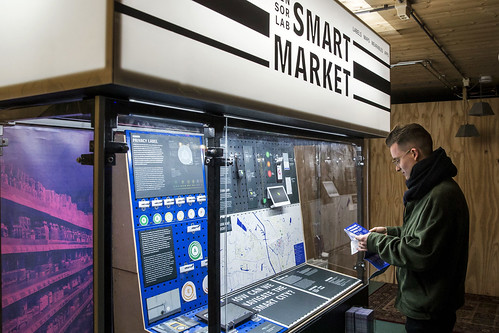Wednesday, 8:00am
3 February 2021
To share or not to share …
Designers are uniquely placed to navigate the ethical issues of our increasingly connected world. John Ridpath speaks to Clever°Franke about a speculative labelling system and Cirque du Data

Engaging the public around the topic of data (and its responsible use) has been a key theme for design agency Clever°Franke over the past few years, writes John Ridpath.
At the end of 2020, the data-driven design agency released a documentary (produced by IJsbrand van Veelen and Studio New West) telling the story of Cirque du Data. This performance, co-organised with city lab Raum in 2019, saw a ringmaster, clowns and other performers bring data awareness to a big top. The circus-themed show was designed for a weekend of performances in Leidsche Rijn, a ‘smart’ neighbourhood in development in the west of Utrecht.
Title frame from documentary about Cirque du Data (2020).

Asking the audience about privacy at the Cirque du Data, organised by Clever°Franke.

During the show, audience members were asked personal questions such as ‘do you volunteer?’ and ‘do you watch pornography?’. Sharing (or refusing to share) this information publicly, and seeing how others responded, proved to be an enlightening experience for the audience. Anyone using a smartphone will passively answer hundreds of similarly personal questions in the course of a single day’s browsing – often without a sense of awareness, control or ownership.
Wouter van Dijk, design director at Clever°Franke, observes that when artists approach these challenges, they tend to portray a ‘dark future’ via ‘design noir’. He believes that designers, unlike artists, should meet the challenges of technology with solutions rather than criticism: ‘Designers need to move beyond “all data is scary”, and look forward to how it can be applied – it’s here anyway, it’s part of our daily lives,’ he says.
Privacy Label proposal. Design by Clever°Franke.

Privacy Label is one such solution (and the winner of the Gold Jury prize at the 2019 European Design Awards). Taking inspiration from such initiatives as the European Union energy label, Clever°Franke hopes to create a universal visual language around privacy. Labels are designed to be displayed anywhere data is collected: from physical shopfronts and CCTV cameras, to websites and underground train ticket barriers.
Privacy Label shown in proposed use on an automated turnstile in the Netherlands. Design by Clever°Franke.
Privacy Label shown in proposed use on a website, a smartphone and a security camera. Design by Clever°Franke.

Each ranking is calculated by answering a series of fifteen ‘yes’ or ‘no’ questions, grouped into three privacy categories: collection, usage and control. Each ‘yes’ answer contributes towards the total score, represented with a letter (from A to F) and colour (from green to red). A radial bar visualisation encloses the letter, with each filled bar representing a positive answer. The visual effect of this design is that better scoring labels appear more closed and protected.
Futurist and Wired co-founder Kevin Kelly has argued that ubiquitous surveillance is ‘inevitable’. Data collection and processing are, in his view, an inherent feature of the internet’s character. Today’s designers have an opportunity to address the problematic outcomes of this trend. As Clever°Franke’s work demonstrates, data privacy is about more than cookie pop-ups and impenetrable privacy policies. Our relationship with tracking technology has the potential to be simple, transparent and, one hopes, more symmetrical.
John Ridpath, writer, technologist, London
Privacy labels shown in Clever°Franke’s installation at Leidsche Rijn, a ‘smart’ neighbourhood west of Utrecht, 2019.

Eye is the world’s most beautiful and collectable graphic design journal, published for professional designers, students and anyone interested in critical, informed writing about graphic design and visual culture. It is available from all good design bookshops and online at the Eye shop, where you can buy subscriptions and single issues.



